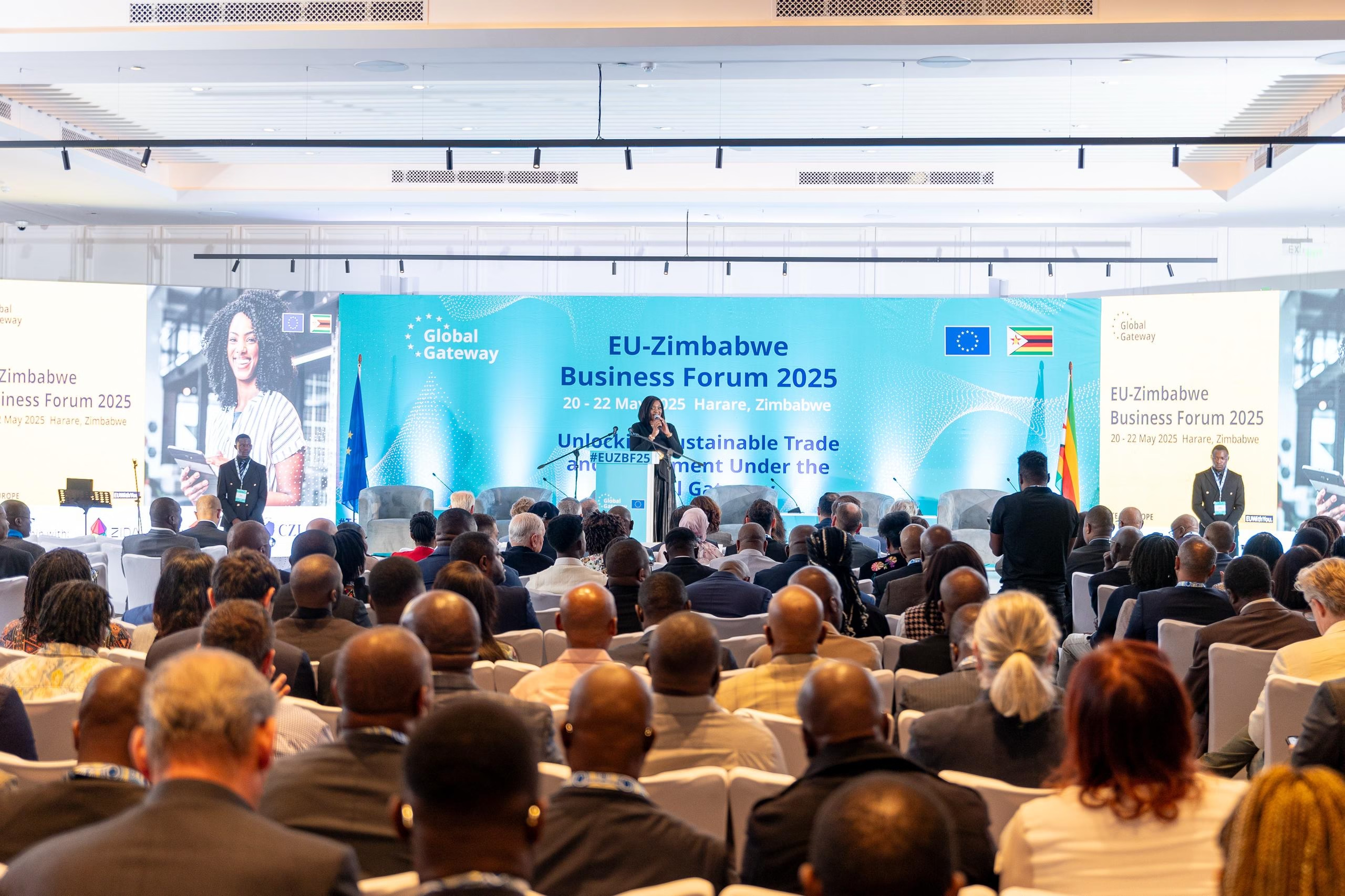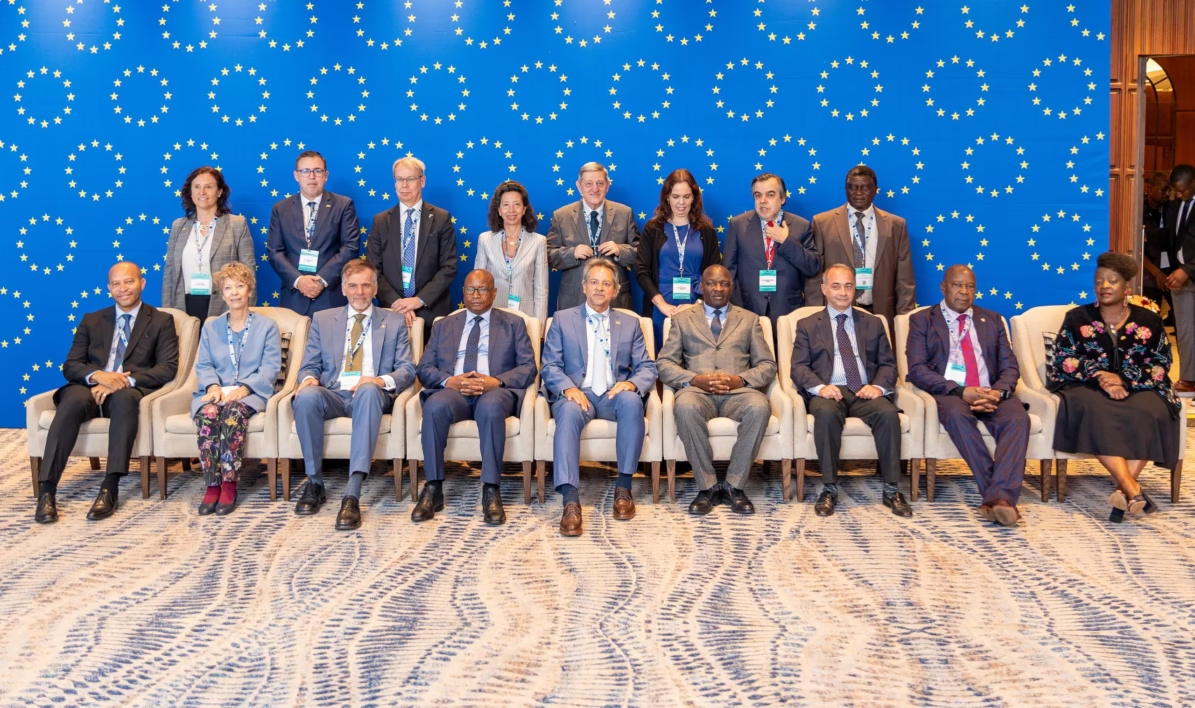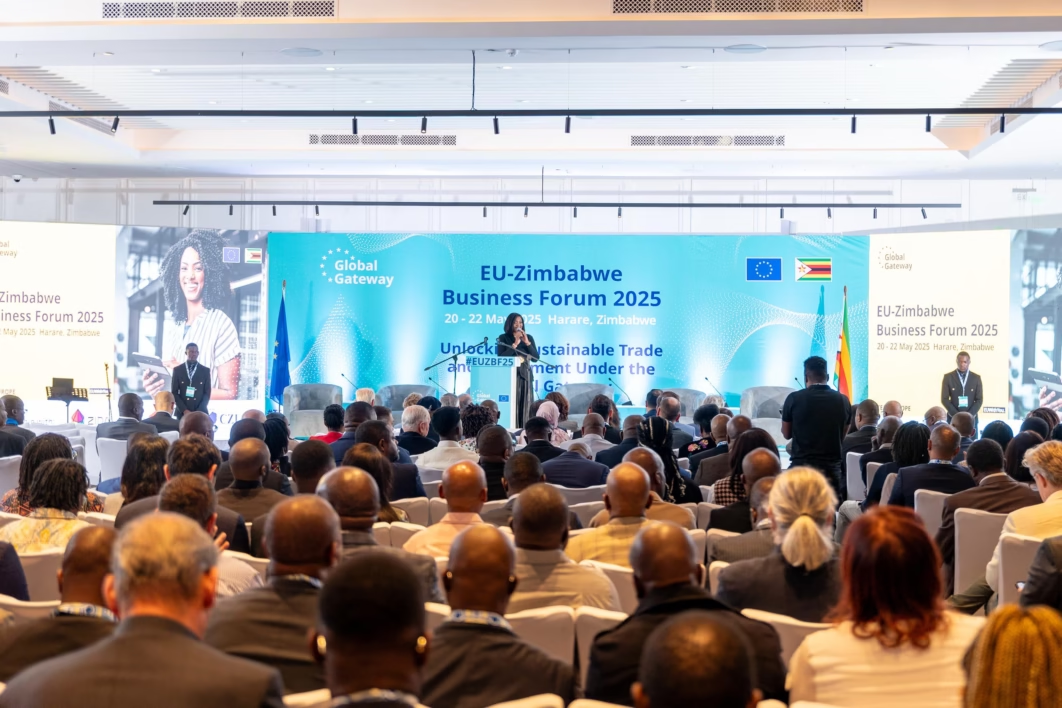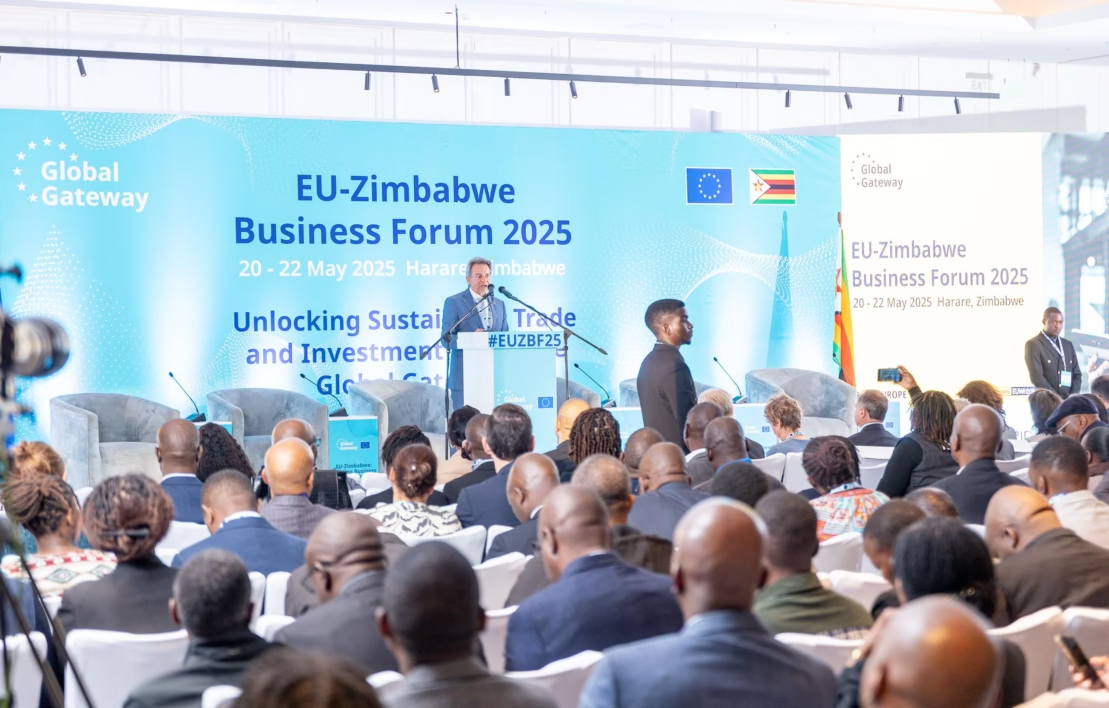
The Meikles Hotel in Harare was transformed on May 20, 2025, into a bustling hub of possibility, as delegates from across Europe and Zimbabwe convened for the first-ever EU–Zimbabwe Business Forum. Far from being a ceremonial event, the forum was a bold declaration of intent, intent to build partnerships rooted in data, dialogue, and deliverables. In his opening statement, European Union Ambassador to Zimbabwe, H.E. Jobst von Kirchmann, cut through diplomatic formalities with clarity and conviction. “Let us be honest,” he said, “It is not the EU that creates jobs or makes deals, it is the private sector. The EU is here to open doors and ensure they stay open.” That sentiment resonated throughout the room filled with ministers, diplomats, CEOs, and trade representatives, pointing to a pragmatic shift from speeches to action.

The numbers were encouraging: a 30 percent rise in trade between the EU and Zimbabwe over the past three years, now valued at USD 880 million, and a 90 percent surge in EU foreign direct investment over the same period, totalling USD 870 million. These are not minor shifts, they represent a growing appetite for economic re-engagement with Zimbabwe. But as Ambassador von Kirchmann pointed out, real-world transformation demands more than data, it requires presence and partnership. That spirit of engagement was evident in the impressive attendance: over 60 European companies and more than 150 Zimbabwean firms were represented, with attendees from France, Germany, Austria, the Netherlands, Spain, and several non-EU states including Norway, Serbia, and Ukraine. The demand for participation was so overwhelming, over 600 applications, that organisers were forced to turn many away, signalling strong international interest in Zimbabwe’s evolving business landscape.

At the heart of the forum were clearly identified value chains, deliberately chosen for their potential to generate mutual benefit. Agriculture, agro-processing, renewable energy, and mining were singled out as priority sectors. These are not new areas of interest, but the approach was new, less about general opportunity and more about structured exploration. In addition to these, cross-cutting sectors such as transport, logistics, financial services, and Technical and Vocational Education and Training (TVET) were also flagged for their catalytic roles. Rather than idealising the Zimbabwean market, the forum addressed investment risks head-on. “No investment is risk-free,” von Kirchmann noted. “But companies are not looking for zero risk; they are looking for predictability.” This realism underscored the forum’s broader goal, to offer accurate, actionable insights to help businesses make informed investment decisions.
The forum’s operational structure further cemented its hands-on character. A tailored B2B matching platform facilitated more than 150 bilateral meetings, and themed sessions provided space for both aspiration and critique. Companies were urged to explore tangible ventures, including those connected to the sovereign Mutapa Investment Fund. A sectoral project visit scheduled for Thursday promises further exposure to real-time business environments across the priority industries. Zimbabwe Investment and Development Agency (ZIDA), working closely with institutions such as ZimTrade and the Confederation of Zimbabwe Industries (CZI), committed to easing the bureaucratic path for foreign firms, signalling a proactive stance on removing administrative barriers.

Looking ahead, von Kirchmann expressed confidence that the USD 1 billion mark in both trade and investment is within reach. He cited significant developments that could catalyse further economic alignment. Among them is President Mnangagwa’s debt resolution and arrears clearance initiative, which may re-open doors to sovereign lending and large-scale infrastructure funding through the EU’s Global Gateway initiative. Another game-changing policy is the recent issuance of bankable title deeds, which could revolutionise land use, unlock access to credit, and attract capital into agricultural joint ventures. The Ambassador also disclosed that Zimbabwe and the EU are close to finalising a Deepened Economic Partnership Agreement, which will include Mauritius, Madagascar, Seychelles, and Comoros. Once ratified, it will be the first of its kind between the EU and Africa, a potentially historic leap in continent-to-continent trade integration.
As the day concluded, the underlying message of the forum remained clear: Zimbabwe is no longer a peripheral market, it’s a partner in the making. With shifting global trade dynamics, increased investor interest, and a new culture of economic realism, the EU-Zimbabwe Business Forum has laid a foundation that extends beyond policy frameworks. “Now is the time to invest in Zimbabwe,” von Kirchmann said in closing. “This is not blind optimism; it is grounded in the traction we are already seeing. The EU and Zimbabwe are no longer testing the waters. We are diving in. Silani, tinemi, EUwithu.”




